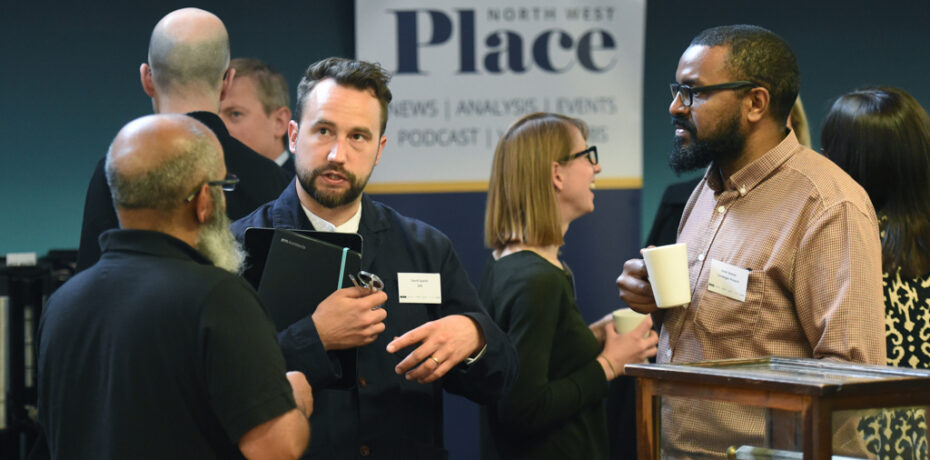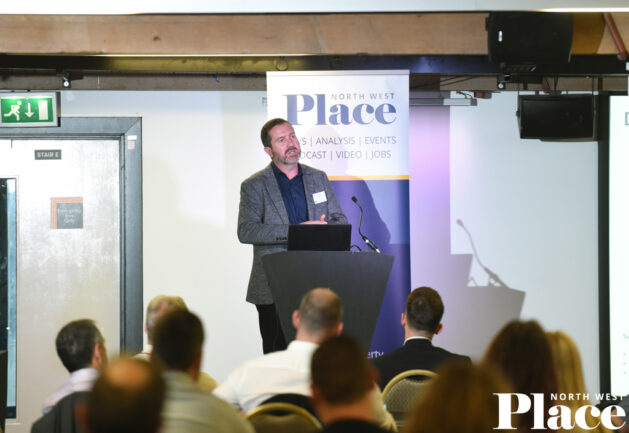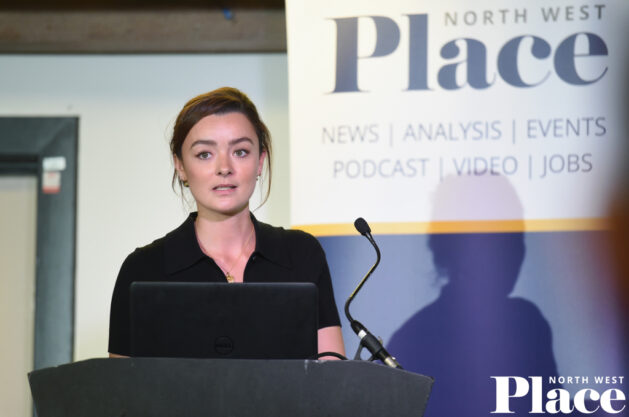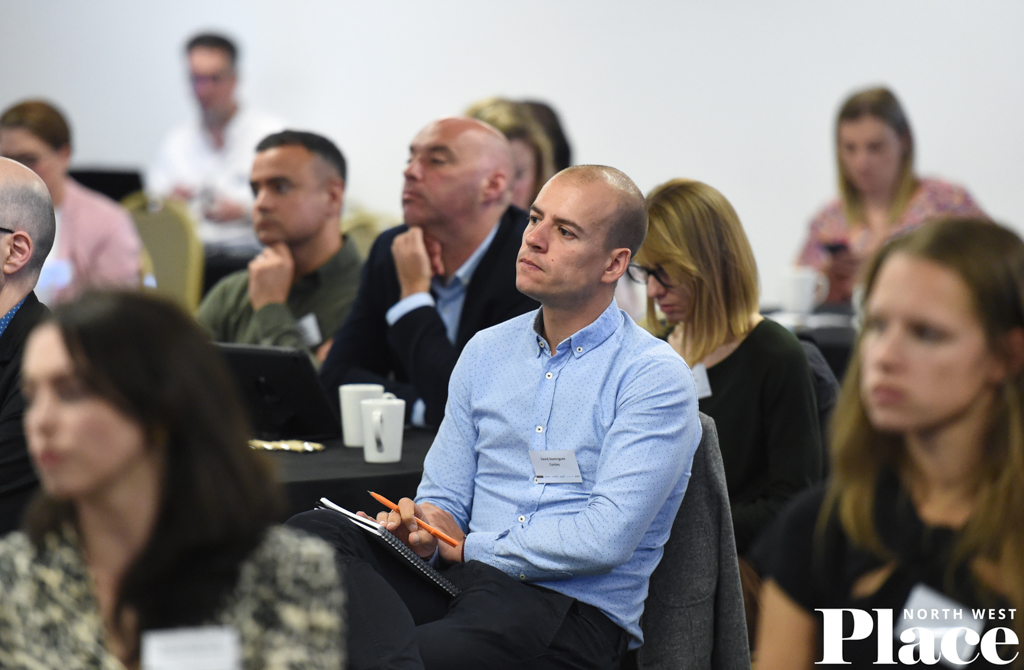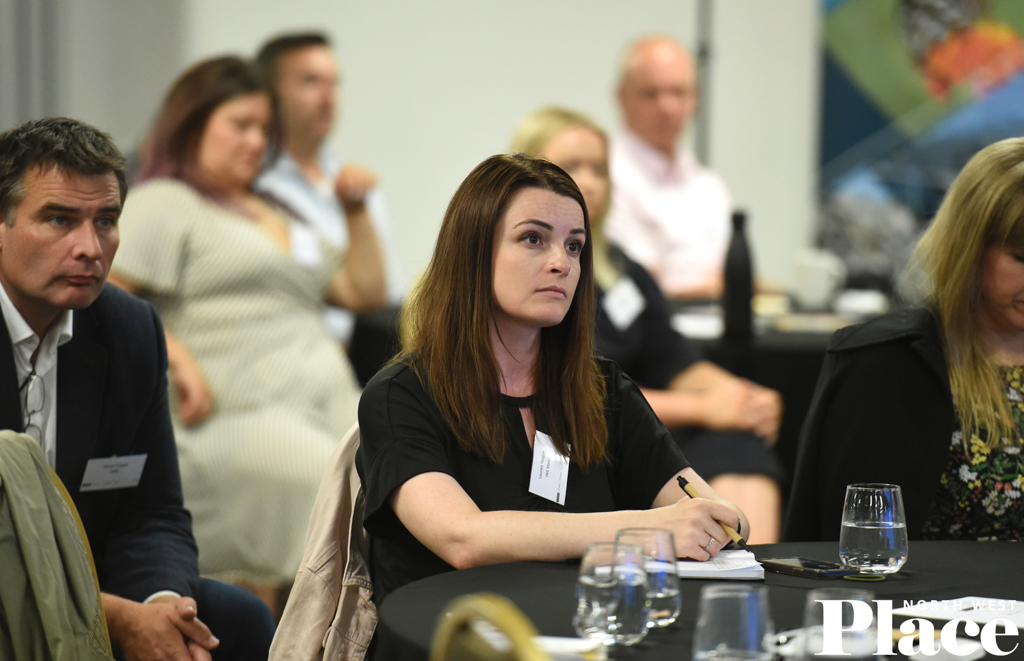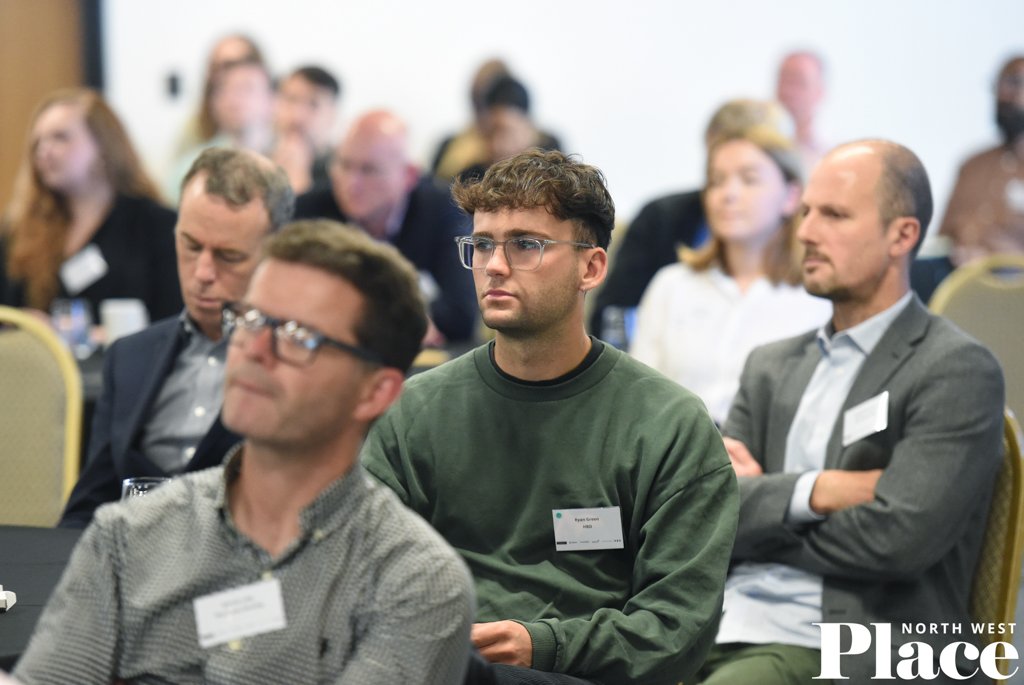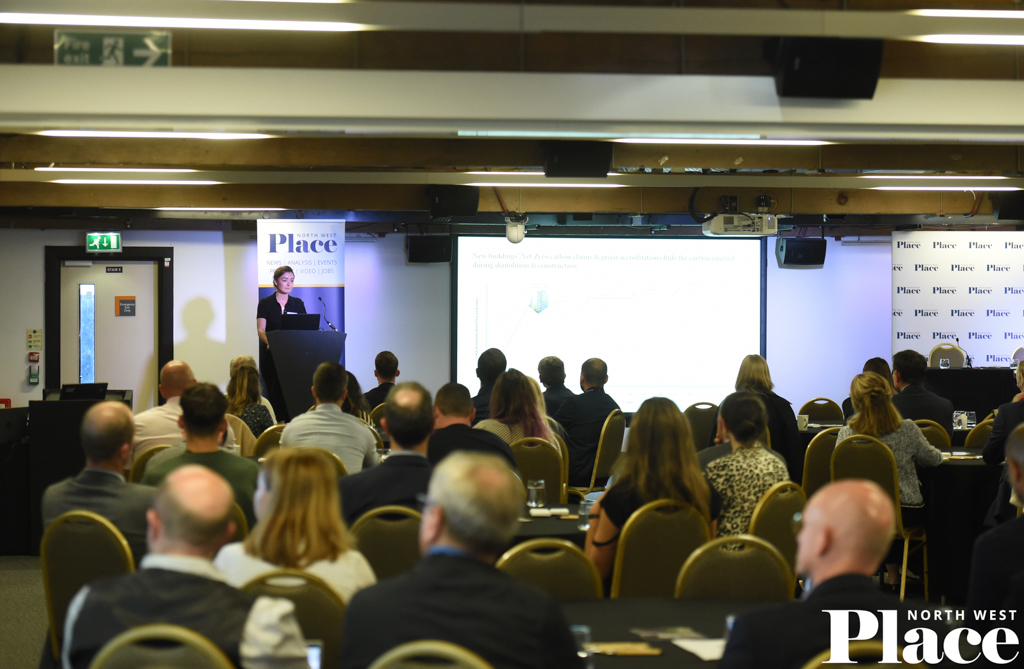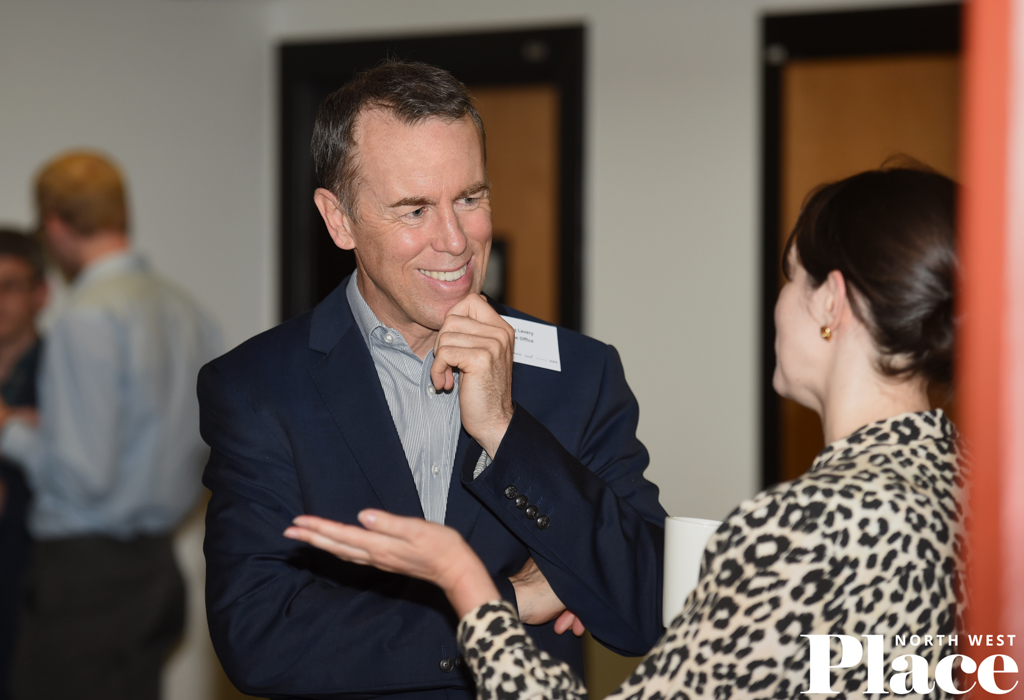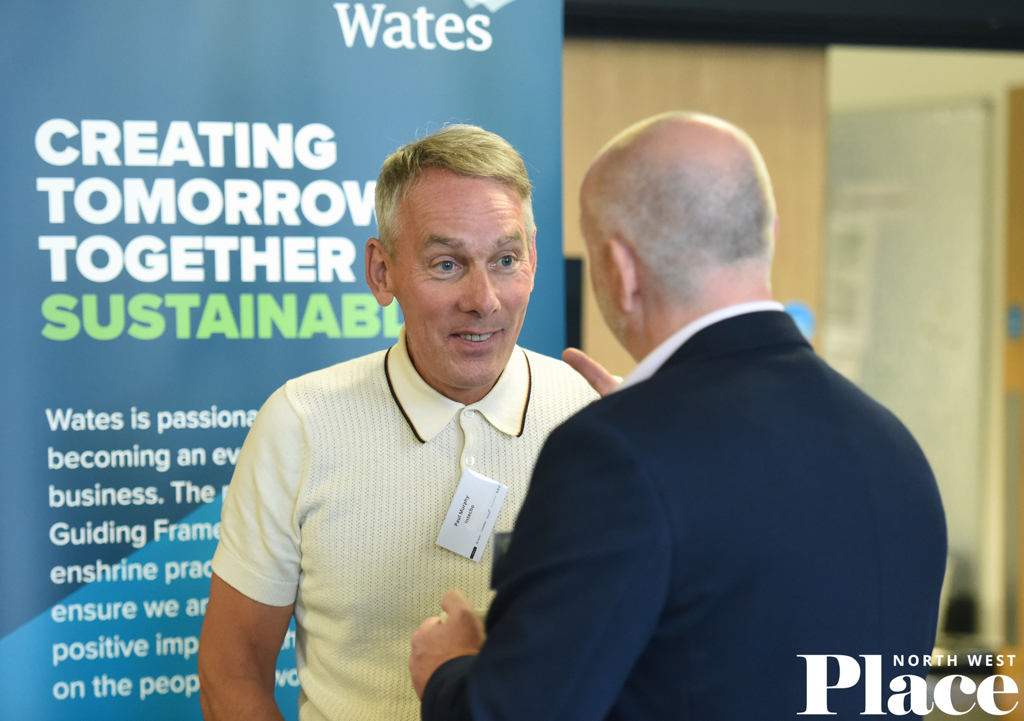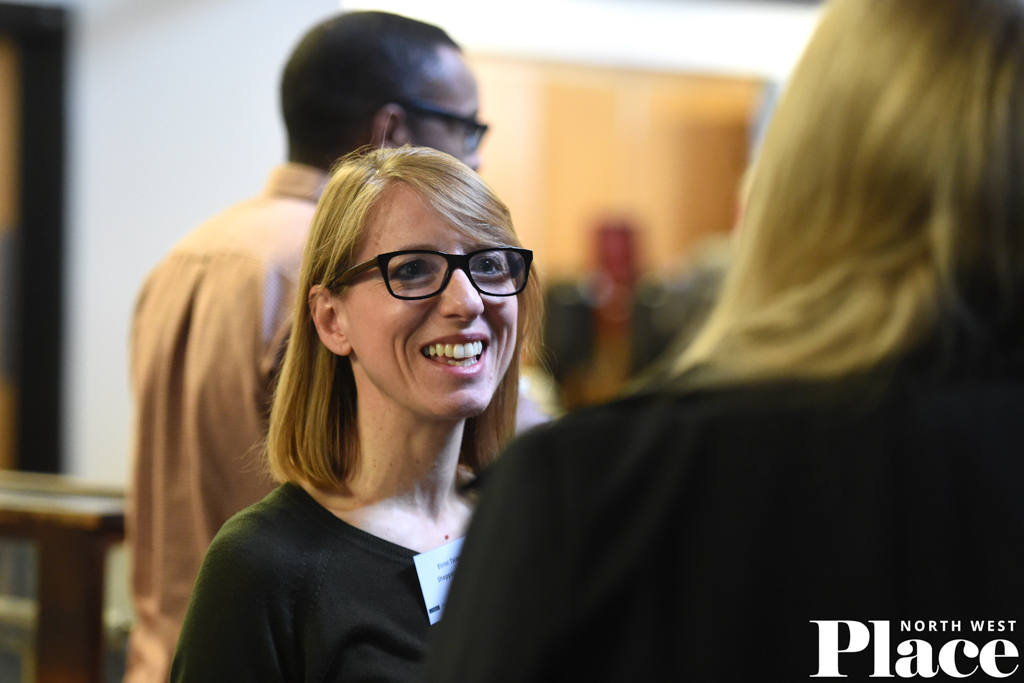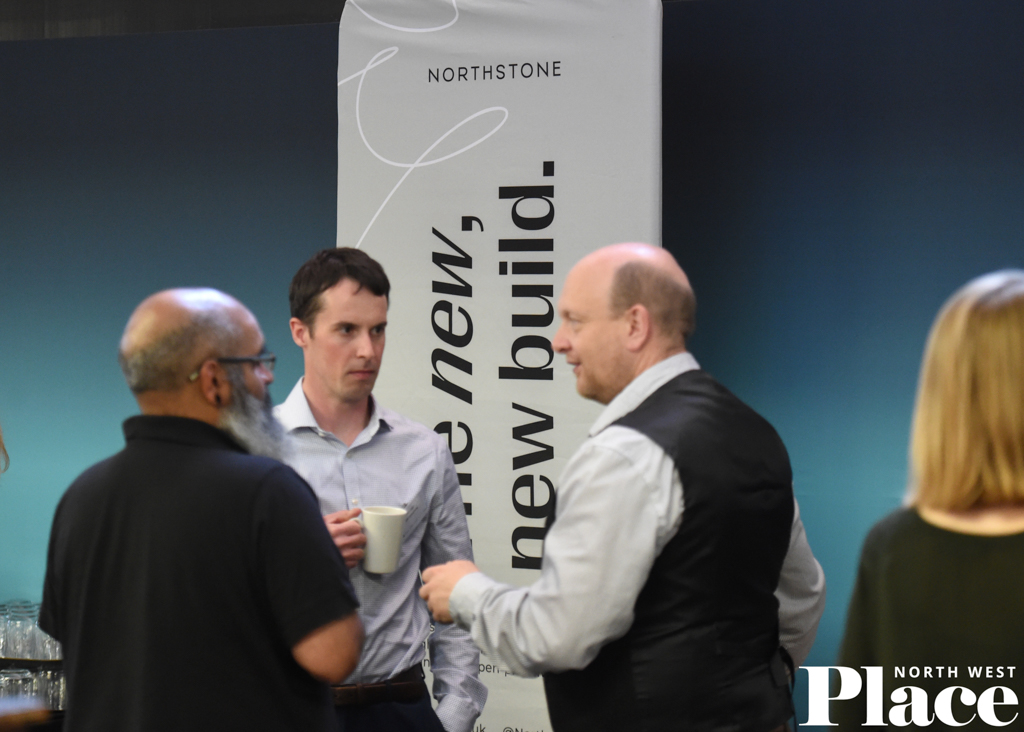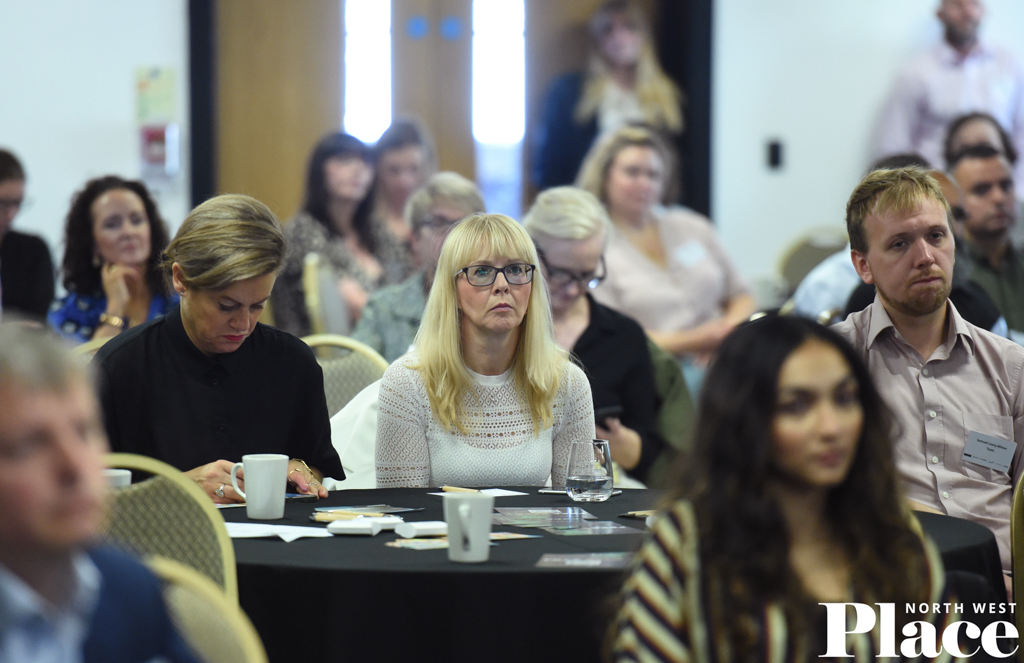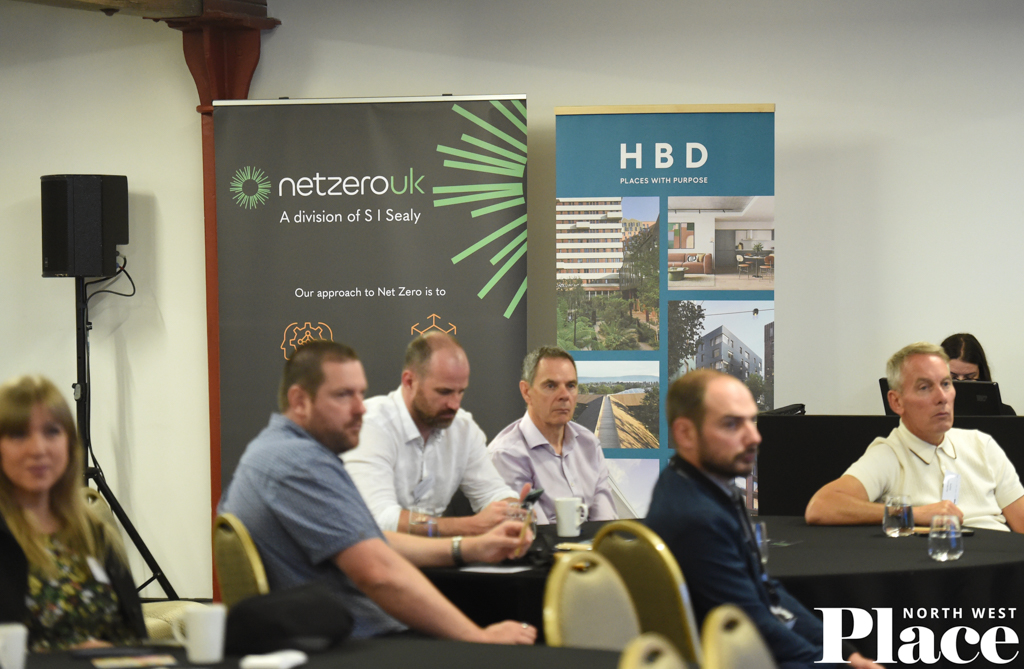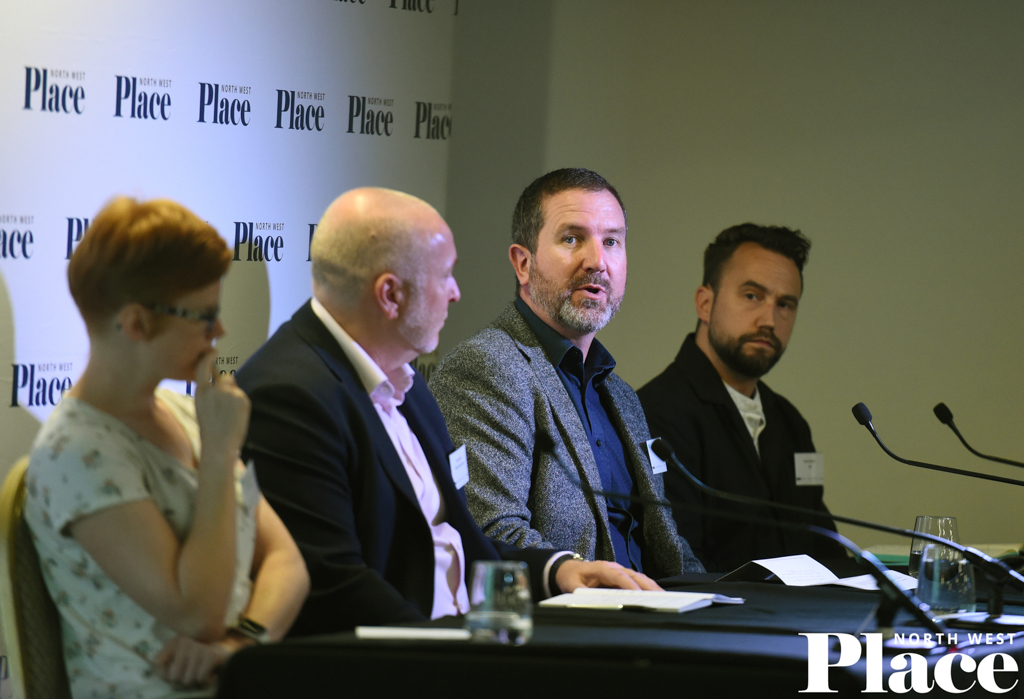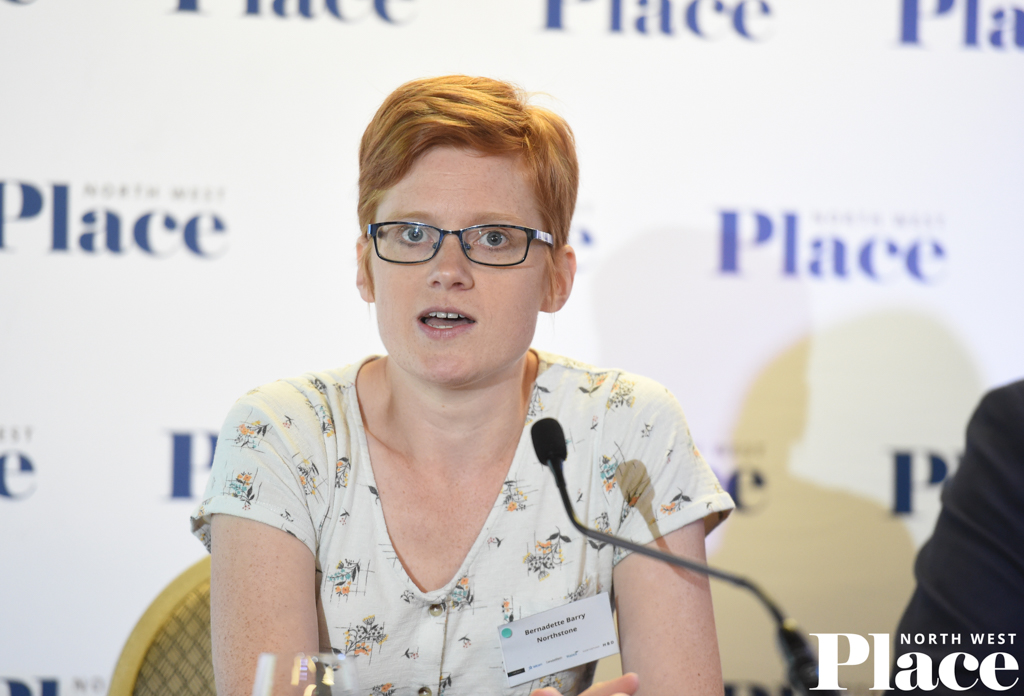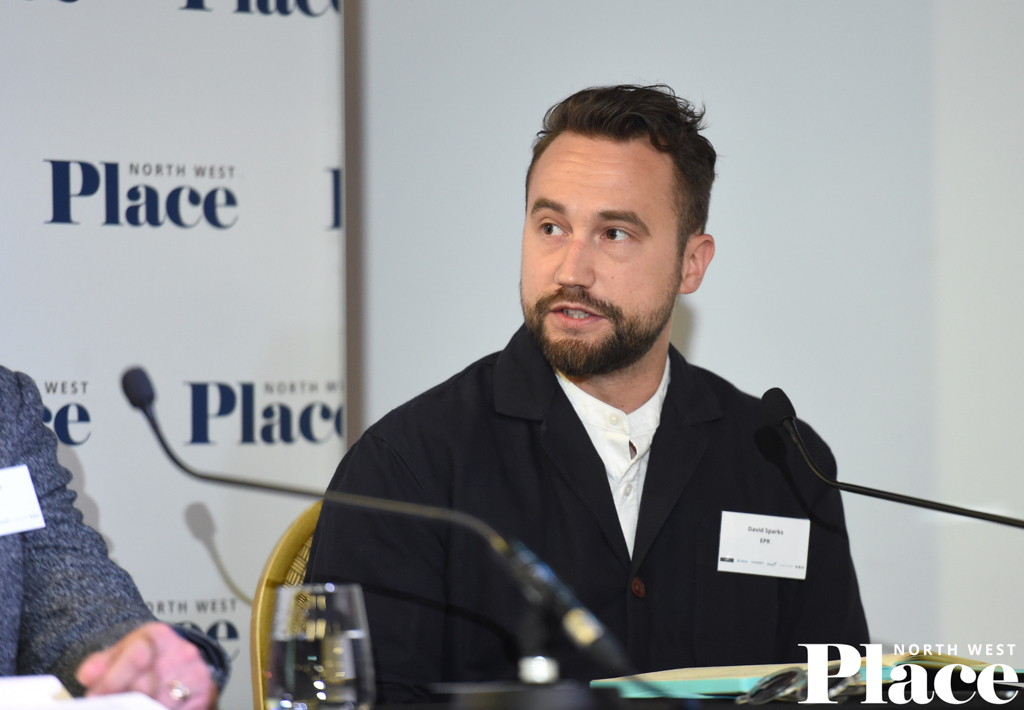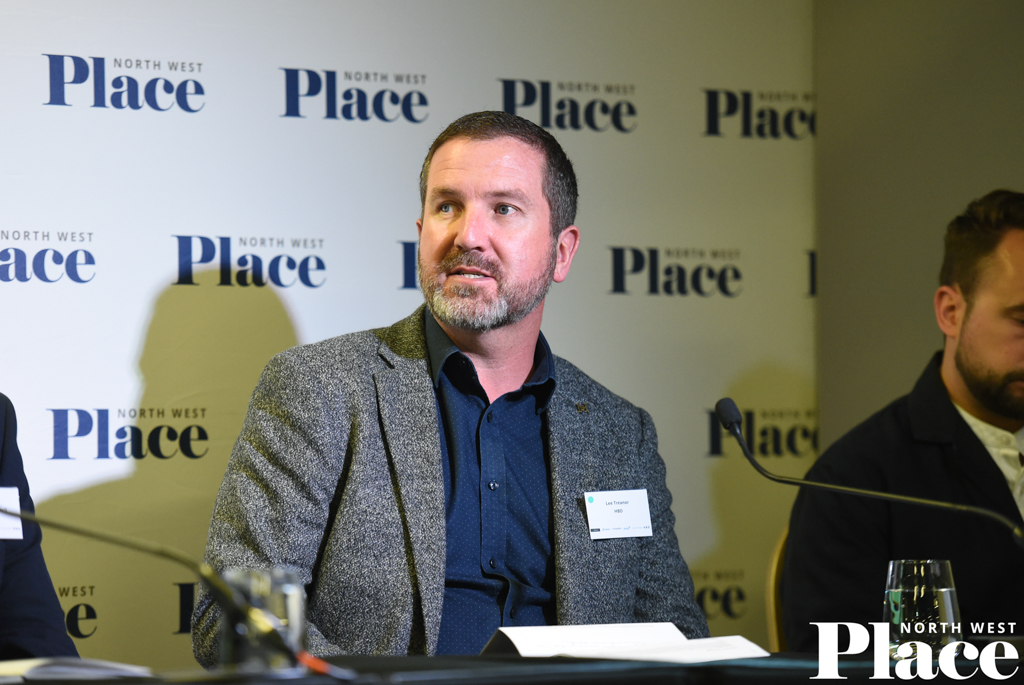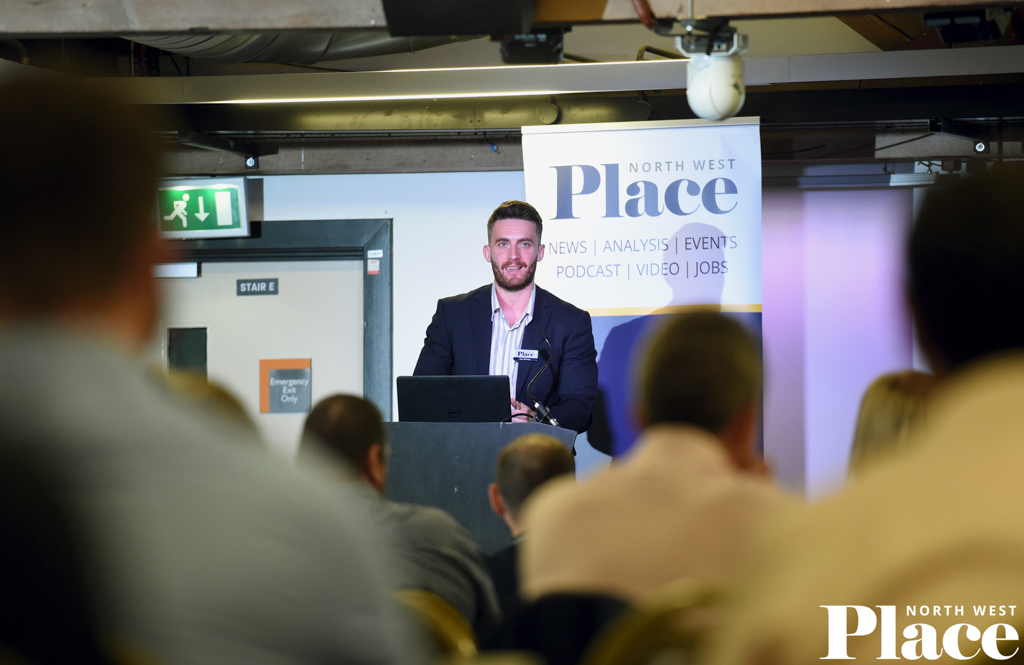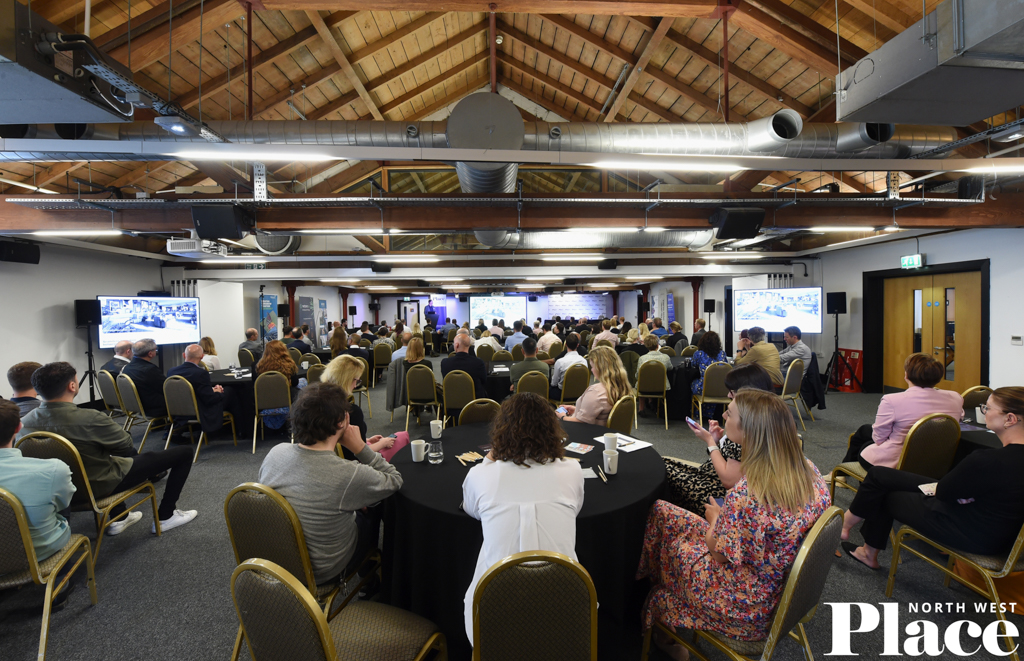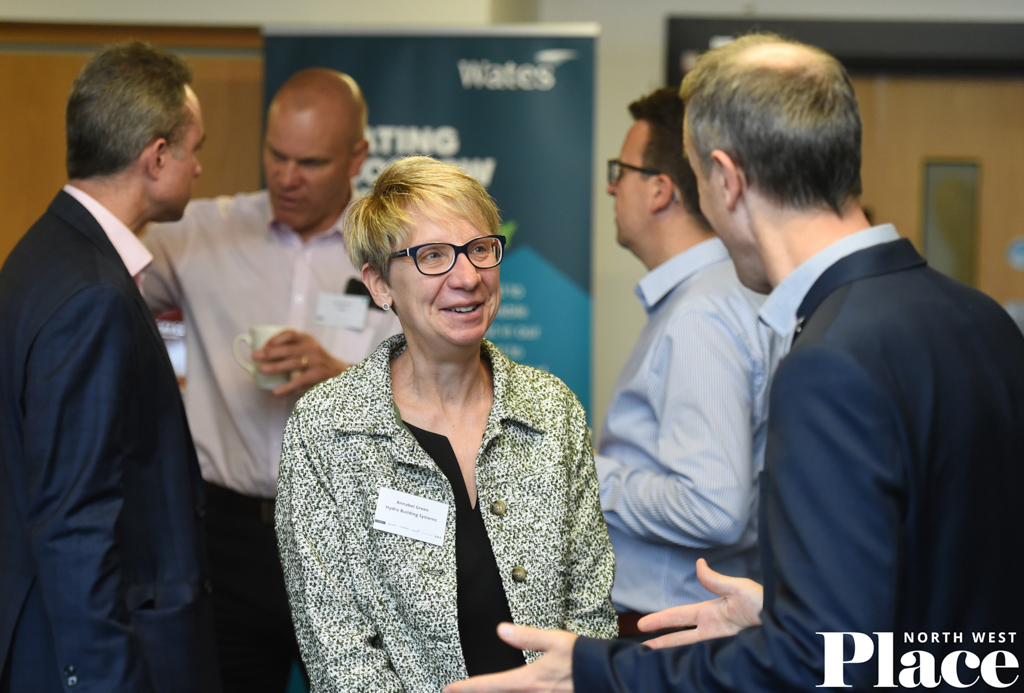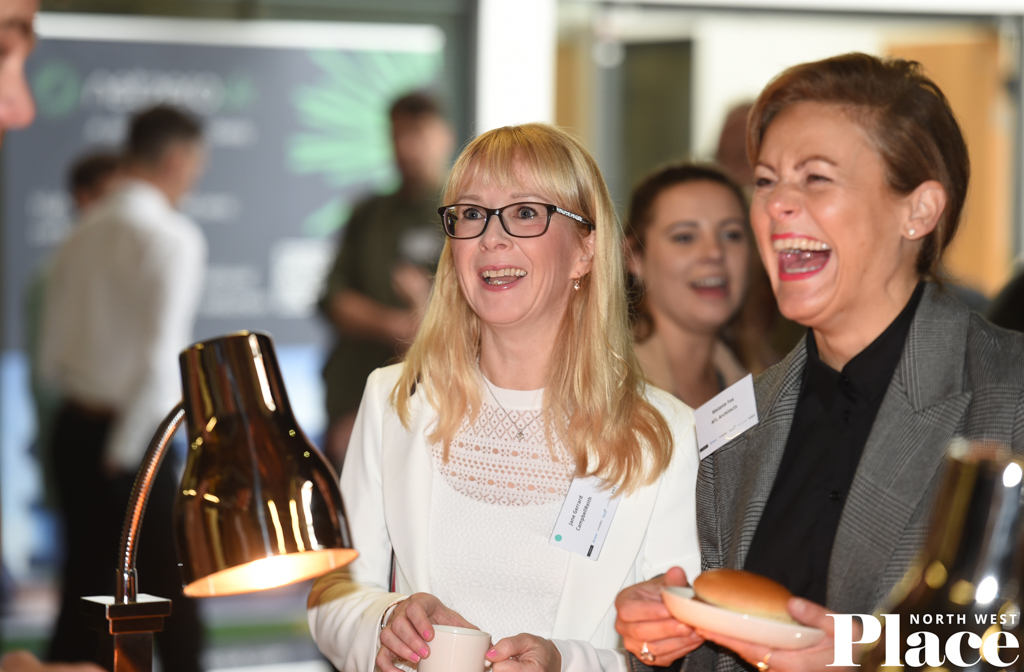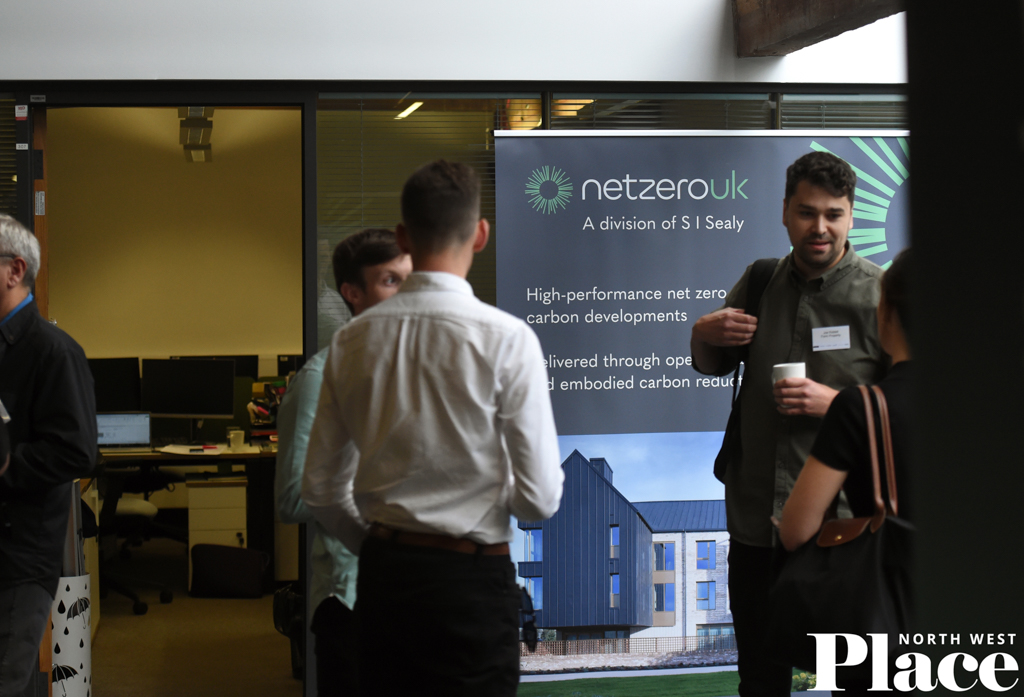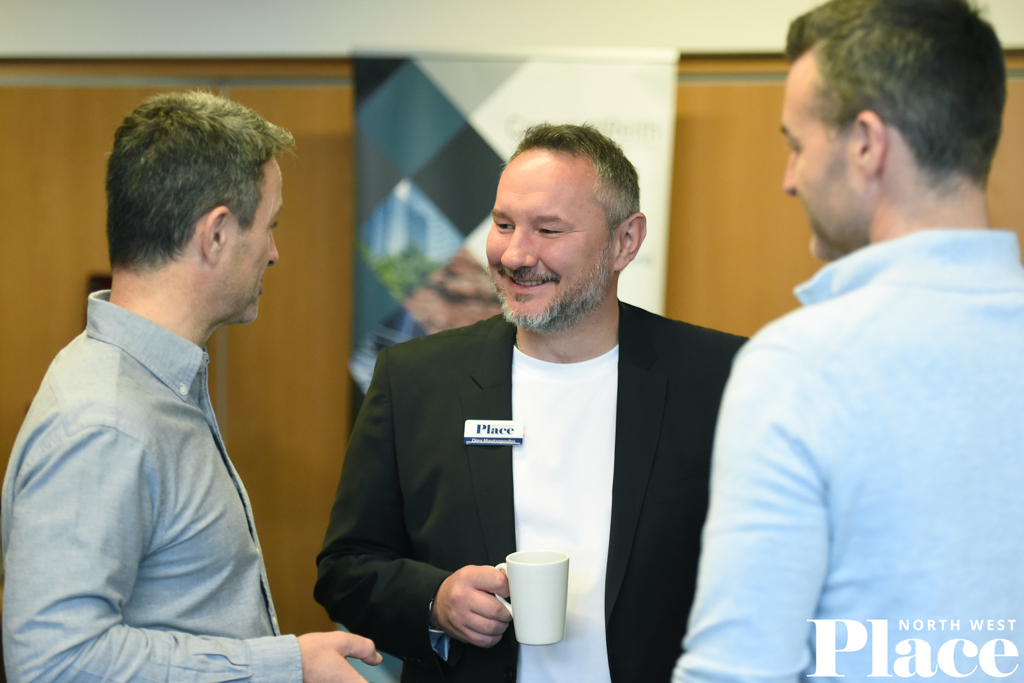Sustainability in Practice | Photos, slides, and summary
Major developers and local authorities including Kinrise, Northstone, HBD, Plus Dane, Manchester and Salford City Councils came together to debate the challenges facing sustainable new-build and refurbished property delivery at this dedicated conference by Place North West.
Sustainability in Practice was sponsored by Net Zero UK, Telcom, CampbellReith, Wates, Northstone and HBD.
Island sight
Lee Treanor, director at developer HBD, laid out the ESG benefits and thinking that went into the Island office project in central Manchester. The project is formulated around the principles of ‘three Ps’ – people, place, and planet.
Benefits include 12,500 sq ft given to amenity through an informal ground floor setting; roof terrace; 100,000 sq ft office designed according to UK Green Building Council net zero guidance and smart technology. Treanor said a lot of thought went into the solid-to-glass ratio and reveals on facades to reflect the change in solar gain as the sun moves.
Download slides for Lee Treanor, HBD presentation
Passive measures were employed where possible, such as with recycled materials and opening windows. Including opening windows was “a £1m decision”, Treanor said, designed to future-proof the building in expectation of power-hungry air conditioning being phased out in future decades. The building has a predicted 60-year lifecycle.
The smart technology approach includes open protocol software systems that allows occupiers to overlay their own apps for energy monitoring and building access. Transparency was key, Treanor said, to getting people on board with a new vision.
The operational performance is a focus for HBD and funding partner Greater Manchester Pension Fund. Treanor predicted that buildings which score Nabers 5.5 out of six for energy rating will operate at 4.5 when occupiers have moved in. The communication of new behaviours required by occupiers to enable efficient performance of heating, lighting and waste is critical between landlord and occupier in future, he said.
New-build
Speaking on the opening panel, chaired by event host Dan Whelan, on the topic of new-build developments, were:
- Bernadette Barry head of planning and sustainability, Northstone
- John Searle, strategic director of place, Salford City Council
- Lee Treanor, director, HBD
- David Sparks, head of Manchester studio, EPR Architects
David Sparks believed development was passing milestones on the journey to net zero: “EPR Architects in Manchester alone are working on three 5.5-star Nabers-rated buildings. That is a challenge in terms of the design of the building and the major levers that we have to pull. So, structure is a primary target, facade is a primary target. And those things have fundamentally changed our design processes. We’ve seen Eden by Muse being announced at 5.5 is a major milestone. But I think six stars is still a way off.”
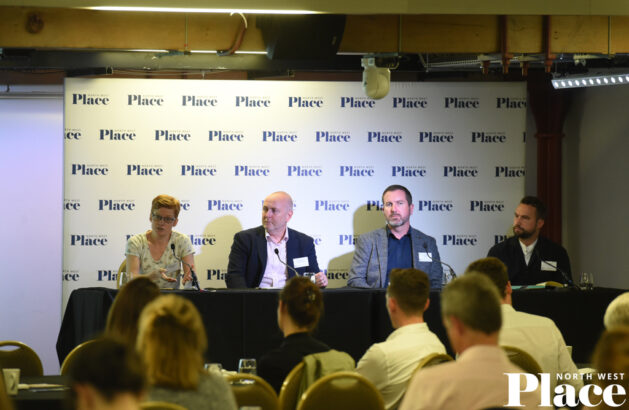
From left: Bernadette Barry of Northstone; John Searle, Salford City Council; Lee Treanor, HBD; David Sparks, EPR Architects. Credit: PNW
Policy context
Salford’s John Searle set out the local government approach: “What we’ve been trying to do both at GM level and at Salford city level is put that policy context around it all. GM’s net zero target is 2038. In Salford, we’ve just produced a new local plan earlier this year, which is talking about things like 10% biodiversity net gain and net zero developments by 2028. We are trying to give that headline strategic approach, that is one of the things we’ve been talking about at GM level. Places for Everyone is trying to deliver 200,000 homes over its lifetime, 30,000 of those homes are supposed to be truly affordable net zero homes as well. So how is that defined? What are the standards we’re trying to achieve?”
Neighbourhood scope
Bernadette Barry, head of planning and sustainability, Northstone: “At Northstone we are trying to broaden it out beyond looking just at carbon. There are other factors at play. Beyond the house, indeed, what we’re aiming for is to create truly sustainable communities. Bearing in mind that these are people’s homes. Actually, we’re in a period now of huge flux in the industry, which we haven’t really seen over preceding decades, in terms of scale and pace of change. We’ve got to remember that you can’t really just use these people as guinea pigs, or else nobody’s going to buy a new home over the next 10 years. For it to work, there has to be a strong focus on research and development.”
Value engineering
Responding to a question about handling contractors that want to reduce costs on a project, HBD’s Treanor said he now included contractual requirements around embodied carbon.
Salford’s Searle added that people talk about extra cost but not so much is spoken about the impact on value. At Eden, the Muse development in Salford, there was a reported 0.25% sharpening of yield value, roughly equating to a 10% premium on price.
Retention first
Upgrading existing buildings is the best way to net zero, not building new ones, according to Laura Boyle, investment and asset manager at Kinrise, established in 2015 with a hunch that character office space would be the future.
On making sustainably refurbished space stack, Boyle said: “The market is always working for or against you, and I think today we all know which way it’s going. Inflation, interest rates, soaring bills, labour, and material costs. Budgets have been squeezed. Cost estimates for acquisitions are not competitive. On the flip side, we have unsettled tenants and businesses with a diluted appetite to take new space in the future, particularly space in old buildings, which are dogged with a stigma that they can be expensive, often painful to occupy.
Download slides for Laura Boyle, Kinrise presentation
“The hardest part of underwriting these buildings,” Boyle explained. “Is the planning assumptions that we make. Can we amend some of the fabric to make the scheme more commercially viable? The answer in our base case, is always ‘no’. However, years of doing this have taught us that there’s a huge lack of supply of Grade A characterful space. And when it’s done, and done well, people are willing to pay a premium for it.”
Participants in the second panel of the day, on refurbishment:
- Laura Boyle, asset and development manager, Kinrise
- Alison Haigh, associate, Buttress
- Claire Dixon, deputy chief executive, Plus Dane Housing
- Cllr Gavin White, executive member for housing and development, Manchester City Council
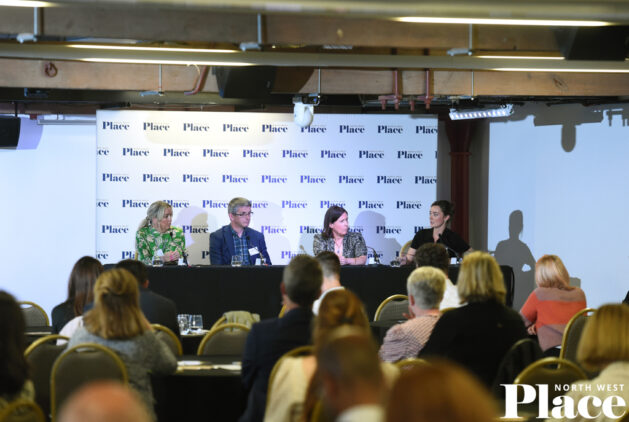
From left: Claire Dixon of Plus Dane Housing; Cllr Gavin White, Manchester City Council; Alison Haigh, Buttress; Laura Boyle from Kinrise. Credit: PNW
Heritage versus new-build
Manchester City Council’s Cllr Gavin White called for balance in the city’s stock. “We have some fantastic heritage assets in Manchester and I think we want to keep as much of that as possible on that journey to net zero, that obviously is better for the environment. But we also need new-build as well. It’s ensuring that you get the right development for the right site. Through planning, building control, through our conversations with developers and investors, we want to get the right mix of development and for our city. There’s a lot of protection there if it’s a listed building but a lot of buildings have got heritage value that aren’t listed, and we want to try and retain those wherever possible.”
Energy performance value
Alison Haigh of architect Buttress turned to the residential sector and the value of Energy Performance Certificates. She commented: “I come from a housing background, and I think a lot of the drivers of value are different [from commercial property], particularly in private ownership, which represents two-thirds of the housing stock. I’m not sure that people buying houses are looking at EPCs; perhaps they are in recent times as fuel prices have gone up, but I don’t really see the value in them. If you were thinking about investing in your house, you would probably spend £15,000 on a new kitchen because you know that will improve the value. Investing in energy improvements doesn’t necessarily do that.”
Haigh called for government to publish a roadmap to net zero for homeowners and ‘nudge’ policies to drive adoption of sustainability-focused behaviours.
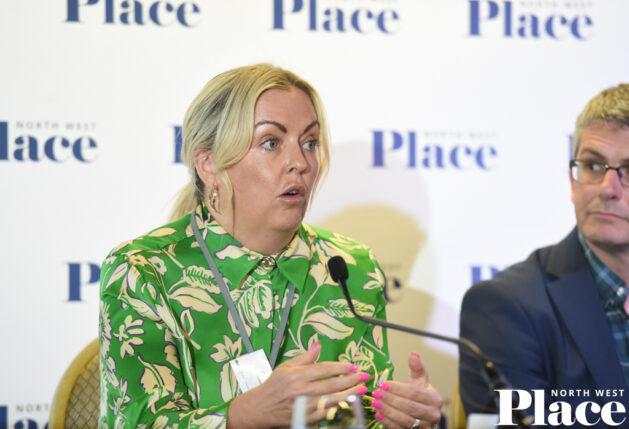
Housing associations face unique challenges when it comes to retrofit, according to Claire Dixon. Credit: PNW
Engaging social housing tenants
Plus Dane’s Claire Dixon described the challenge of retrofitting occupied housing. “We’re actually going into people’s homes, and doing large scale retrofit works. That’s not always welcome. We’ve got challenges with people who live in those homes who might not be in a position where they can move boxes, they can move furniture, they’ve got expectations around décor. A lot of social housing contractors aren’t qualified to take part in work through the Social Housing Decarbonisation Fund which means we’re going to partners we’ve not worked with before, and might be new to the sector. They’re finding it difficult when they encounter that engagement piece and see how far we go.”
Join us for our next conference: Greater Manchester Development Update | Thursday 7 September
Click image to launch gallery


